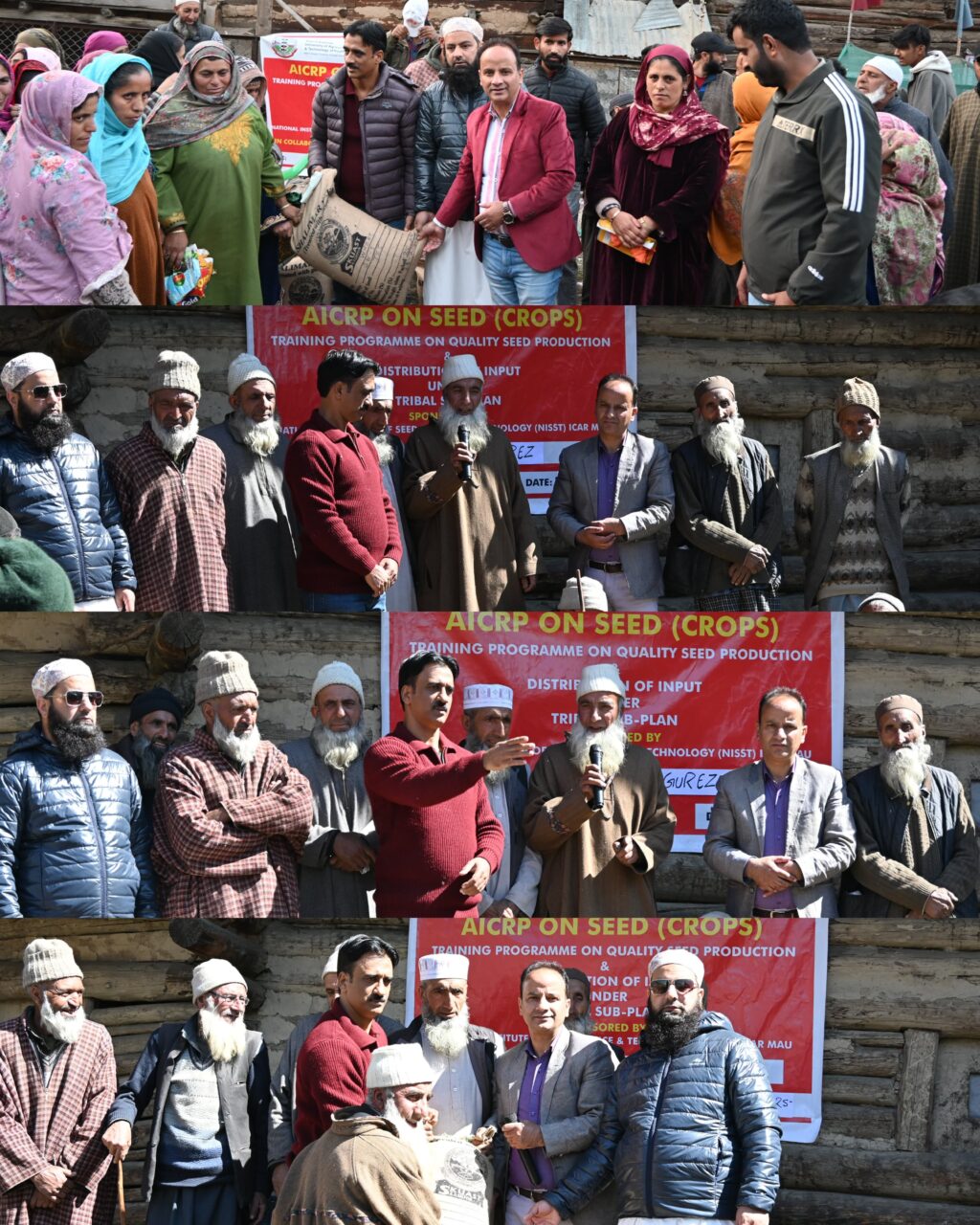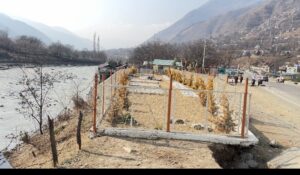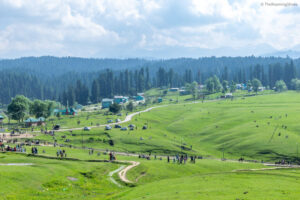Shalimar Wheat-3 Reaches the Last Village: SKUAST-K Takes Modern Wheat Technology to Tribal Farmers of Gurez

University’s Mega Outreach under TSP-AICRP Brings Nutrient-Rich, High-Yield Wheat to 700 Tribal Farmers across Remote Tulail and Chorwan ValleysBandipora, October 17:In a remarkable stride towards agricultural empowerment of tribal communities, Sher-e-Kashmir University of Agricultural Sciences and Technology of Kashmir (SKUAST-K) successfully conducted a two-day mega outreach programme from October 16 to 17, 2025, under the Tribal Sub Plan (TSP) – AICRP on Seeds (Crops), NSP Srinagar Centre, in collaboration with KVK/MAR&ES Gurez.The initiative marked the formal introduction of SKUAST-K’s most novel wheat variety — Shalimar Wheat-3 (SW-3) — to the tribal farmers of Gurez valley, ensuring that the benefits of latest agri-technology reached even the last villages along the LoC, including Chorwan, Gujraan, Abdulain and Chakwali.A record 70 quintals of SW-3 seed, coupled with the scientific package of practices, were distributed among 700 tribal farmers, covering over 70 hectares (1400 kanals) of land across the valley. The event drew wide appreciation for bringing cutting-edge research directly to the doorstep of the most remote farming communities.Addressing the large gathering, Prof. Gowhar Ali, Principal Investigator NSP (Seeds), SKUAST-Kashmir, highlighted that Shalimar Wheat-3 represents the university’s latest innovation — a biofortified, disease-resistant, and high-yielding variety capable of producing up to 38 quintals per hectare, significantly enhancing nutritional and economic security.Dr. Shabir Hussain Wani, key contributor to the development of SW-3, emphasized that adoption of the technology on scientific lines would boost productivity and minimize dependency on external seed sources in Gurez.Speaking on the occasion, Dr. Hilal Ahmad Malik, Head KVK/MAR&ES Gurez, reiterated SKUAST-K’s commitment to preserving traditional crops while introducing University Released Varieties (URVs) to improve livelihood opportunities under natural and organic farming systems, in line with the vision of Hon’ble Vice-Chancellor Prof. Nazir Ahmad Ganai and the strategic guidance of Prof. Raihana Habib Kanth, Director Extension SKUAST-Kashmir.Dr. Malik added that the impact assessment and monitoring of the technology adoption will continue to ensure long-term benefits for the tribal farming community. Scientists Dr. Jauhar Rafeeq, Dr. Riyaz Ahmed, and Dr. Shahida Altaf also deliberated on best practices for maximizing field performance.The participating farmers expressed heartfelt gratitude to SKUAST-Kashmir for bridging the technology gap and bringing sustainable agricultural solutions to the frontiers of Gurez valley.



